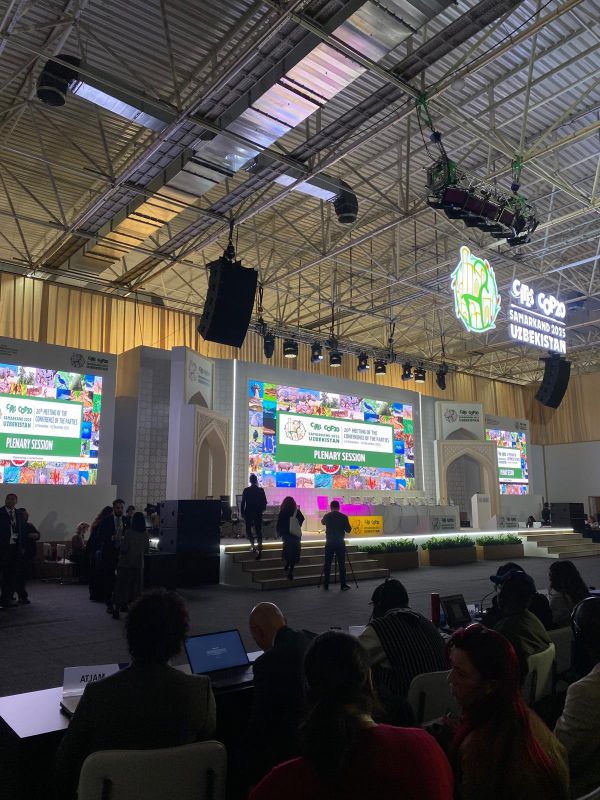Members of the European Parliament are attending the World Wildlife Conference in Uzbekistan to reinforce their commitment to the global effort to combat illegal trafficking in wild animals and plants. The delegation arrived in Samarkand on Monday and will participate in the global meeting on the Convention on International Trade in Endangered Species of Wild Fauna and Flora (CITES COP20), scheduled to take place from 24 November to 5 December 2025.
During the conference, Members of the European Parliament will engage with delegates from non-EU countries, as well as representatives from civil society and the CITES secretariat. In preparation for this critical global meeting, the European Parliament has adopted a resolution. The delegation is co-chaired by Manuela Ripa (EPP, DE) and César Luena (S&D, ES). Other members of the delegation include Silvia Sardone (PfE, IT), Aurelijus Veryga (ECR, LT), and Michal Wiezik (RENEW, SK).
“Without biodiversity, there is no future – and without healthy ecosystems, there can be no stable climate. Therefore, this conference is just as important as the COP30 on climate action. Illegal wildlife trafficking has become the fourth-largest form of organised crime worldwide destroying ecosystems, accelerating species extinction and increasingly moving into online marketplaces. This underlines the need to modernise the CITES convention to better protect endangered species. Illegal wildlife trade must be recognised as serious, organised crime. Moreover, we need a fully modernised digital system that tracks all wildlife trade from source to sale, and legislation that criminalises both trading and keeping illegally sourced wildlife. The time for symbolic commitments is over – we must treat this crisis with the urgency and seriousness it deserves,” said Manuela Ripa (EPP, DE), the co-chair of the delegation.
CITES is an international agreement among governments that aims to ensure global trade in wild animals and plants does not threaten their survival. This year marks the 50th anniversary of the treaty. The 20th Conference of the Parties (COP20) will bring together leaders, scientists, and stakeholders to discuss actions to protect endangered species from overexploitation and to review and update wildlife species listings in Appendices I and II, as well as to outline future directions for CITES.
“Wildlife trafficking is now one of the world’s biggest criminal economies, driving biodiversity loss and harming local communities. At COP20, the European Parliament brings a clear message: wildlife trade must be legal, sustainable and traceable. We strongly support the EU proposals to increase protection for species under pressure, from freshwater eels and deep-water sharks to frogs, sea cucumbers and endangered plants, and we will work to strengthen global action against illegal and online wildlife trafficking. Europe must lead with science, precaution, zero tolerance for illegal wildlife trade and a firm commitment to conservation,” highlighted César Luena (S&D, ES), the co-chair of the delegation.

